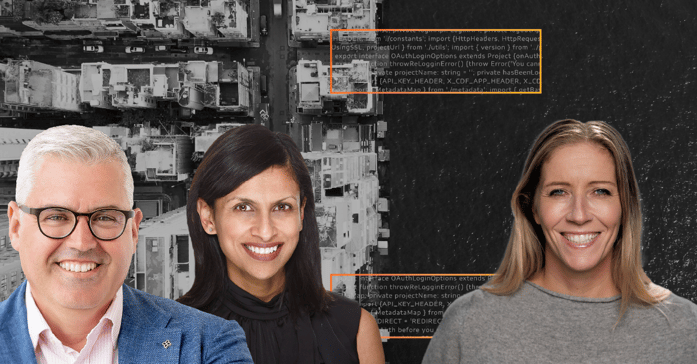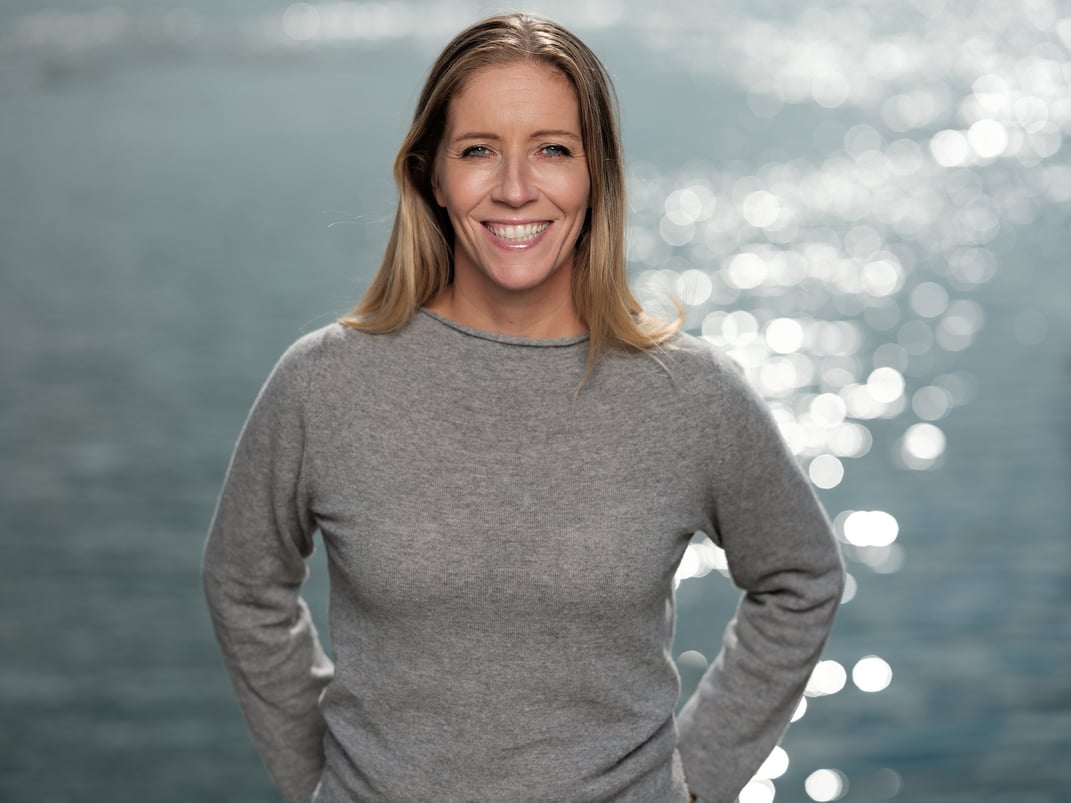
The ocean and the built environment are two completely different habitats, with complexities and nuances that are worlds apart. Yet the solutions for both to become healthy and sustainable are closer than you might think.
Here’s how data and technology are helping two digital industrial frontrunners build a smarter, more sustainable future.
Using data to paint the picture
Nina Jensen believes the secret to a healthier, more sustainable ocean is data. Her company, REV Ocean, is pioneering a data-driven approach to combat plastic pollution, climate change, and unsustainable fishing. She believes the way to save the ocean is to use the enormous amount of data that already exists to paint a picture of the situation and help make informed decisions.
“We need to ensure that all the data that exists on the ocean is combined and put to good use,” Jensen said. “It’s time for an ocean data revolution.”
That revolution has already begun. At its core is the Ocean Data Platform. Powered by Cognite Data Fusion®, the platform is a powerful solution for collecting, navigating, and contextualizing ocean data from different data sources. The Ocean Data Platform, according to Jensen, will enable companies to work more effectively and efficiently to monitor their environmental footprint and then work to reduce it.
 Photo: Nina Jensen, CEO of REV Ocean.
Photo: Nina Jensen, CEO of REV Ocean.
“By putting data and technology to good use, and collaborating across the ocean industries, we are able to innovate and create the solutions necessary to sustain the ocean-related industries and, more importantly, save ocean life,” Jensen said.
The Canadian property company Oxford Properties is putting the same ideas into practice in its commercial buildings. Rather than letting massive amounts of data generated by a building’s systems “fall into the gutter on the street,” in the words of EVP and Chief Operations Officer Dean Hopkins, the company is using the data to create healthier, more efficient environments for the people who use and live in its buildings.
“We’re giving our buildings digital capabilities so that they are more efficient to run, use less energy, and offer more creative options to customers,” Hopkins said. “All of this serves to reduce the risks, lower the costs, and create the ability to monitor the building more closely to detect if something is awry—before it becomes an issue.”
Industry collaboration for meaningful results
While both REV Ocean and Oxford Properties are making headway, they both know that they cannot solve these issues alone. Industry-wide collaboration is needed. This realization was a large part of Jensen’s motivation to leave her role at the World Wildlife Fund (WWF) and start REV Ocean.
“At the end of the day, to solve ocean challenges, you can’t do that with environmental enthusiasm and marine biology alone,” Jensen said. “You need capital and industry players to join the battle.”
She knows that the only way to realize her vision and create meaningful change is through partnerships. REV Ocean works with partners from academia, the private sector, and the government to find and implement more sustainable solutions.
“We combine companies, capabilities, skills, and ways of thinking and magic happens,” Jensen said.
Anushka Grant, VP Business Transformation and Platform Services at Oxford Properties, agrees that while technology and data are driving transformation, the most critical component of all is people.
“People and skillsets are critical right now because even in the asset management business, people are our greatest asset,” Grant said. “We need to start by building capabilities in our people so that they can operate the technology and extract the benefits.”
As with the fight to save the ocean, the people who will transform the asset management business will not come from one company, or one specific area of industry. Hopkins believes that the key to success will come from an industry-wide, global effort.  Photo: Dean Hopkins, COO, and Anushka Grant, VP Business Transformation and Platform Services, Oxford Properties Group.
Photo: Dean Hopkins, COO, and Anushka Grant, VP Business Transformation and Platform Services, Oxford Properties Group.
“Industry collaboration is essential,” Hopkins said. “This is not a future that Oxford Properties Group can design and deliver alone. We need global collaboration between players. If we manage that, I’m hopeful that our industry can do its part to leave the world a better place than we found it.”